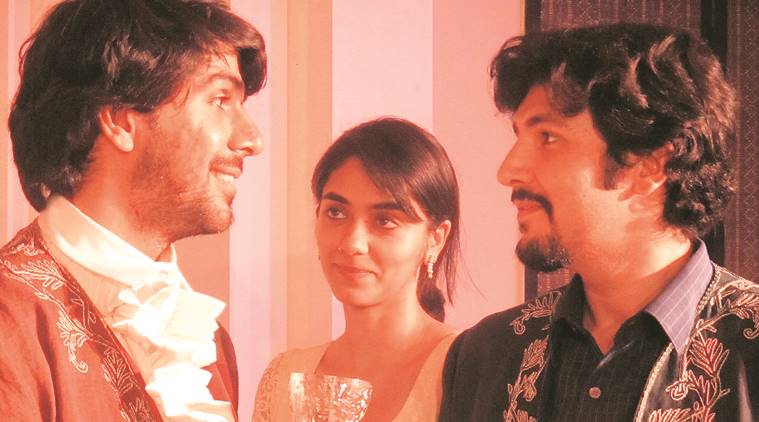
When veteran director Feisal Alkazi was putting together his new two-hour long musical, A Tale of Two Cities, an adaptation of Charles Dickens’ famous 1859 novel, he couldn’t help but draw parallels with Sarat Chandra Chatterjee’s Devdas. He was touching upon the theme of unrequited love.
The unfortunate character of Sydney Carton played by his son Armaan Alkazi, an alcoholic attorney in love with Lucie Manette (Akhila Khanna), decides to die for love in a strange manner. To display his love for Manette, Carton, who looks like Manette’s husband, Charles Darney, takes his place when the man is being beheaded, and declares, “It is a far, far better thing that I do than I have ever done”. Having been a counsellor at an NGO named Sanjivini for 35 years and dealing with those who have attempted suicide, are alcoholics and drug addicts, Feisal says he is moved by this scene, where the tragic hero, who has at most times felt like a wastrel, unable to come out of his addiction, finds meaning in giving up his life for the happiness of another family and the woman he loves.
“We root for the tragic hero, jise ladki nahi milti. All of us have love for the person who is a quiet stranger or that guy on a bike, something that finds resonance in our own life. We all know a Sydney Carton, or Lucie Manette, who chose the steady and the sure, but loved the wastrel Carton, the guy who is never going to make it, or is going to overdose on drugs. And who do we remember from the story? We only remember Carton, we never remember Charles Darnay,” says 64-year-old Feisal, who has over 300 plays to his credit including Love in a Time of Oppression and Tom Sawyer. The musical, a coming together of three scripts and the story of Dickens, as Alkazi points out, feels like a story from today’s times. “One script I got, of which I have used bits, had footage of Donald Trump, Theresa May and Narendra Modi. It is so obvious and underlined. When people see the play, they will get the political questions it is asking. It is all about injustice,” says the director.
Set to travel to Goa, Bangalore and Shimla in the next two months, 200 period costumes designed by Siddharth Sinha, full of ruffles and real embroidery on the coats, show no evidence of a contemporary twist. Scenes of fields, where people carry wooden buckets and wheel barrows, and work on saddles and ropes, bring out the agrarian landscape. The protesting and angry mob in the musical skillfully brings out the whole issue of power residing in the hands of a few and others being deprived of it. The refugee crisis has been touched upon through the character of French refugee Charles Darnay, played by
Ashish Dhameja.
The opening song of the musical, opens with Dickens’ most famous line — It was the best of times, it was the worst of times, and is followed by the words, Enter any great city, when every soul is asleep, can you imagine all the secrets they must keep? The French Revolution song, This Times for Us, is interspersed in the musical with the rousing words, This time for love and laughter, life and liberty. This is when Defarge picks up the body of the dead child run over by Marquis’s carriage.
Daniel B George, the man behind the background score of Andhadhun, has lent his hand to the musical arrangements, along with Delhi-based composer Sharmila B Livingston, conductor for the popular choir, The Capital City Minstrels. Through the music, Livingston has used instruments such as accordion among others, ones that were popular when the novel was written. “Music has a universal role in drawing emotions out of a moment. It is really critical for a play like this because it is a very sombre, dark play but the music gives it a chance to let that emotion rise to the surface,” says Livingston.
A Tale of Two Cities will be staged at Stein Auditorium, IHC, Lodhi Road, at 7 pm on April 20 and 21. Tickets priced at Rs 200 available on Bookmyshow